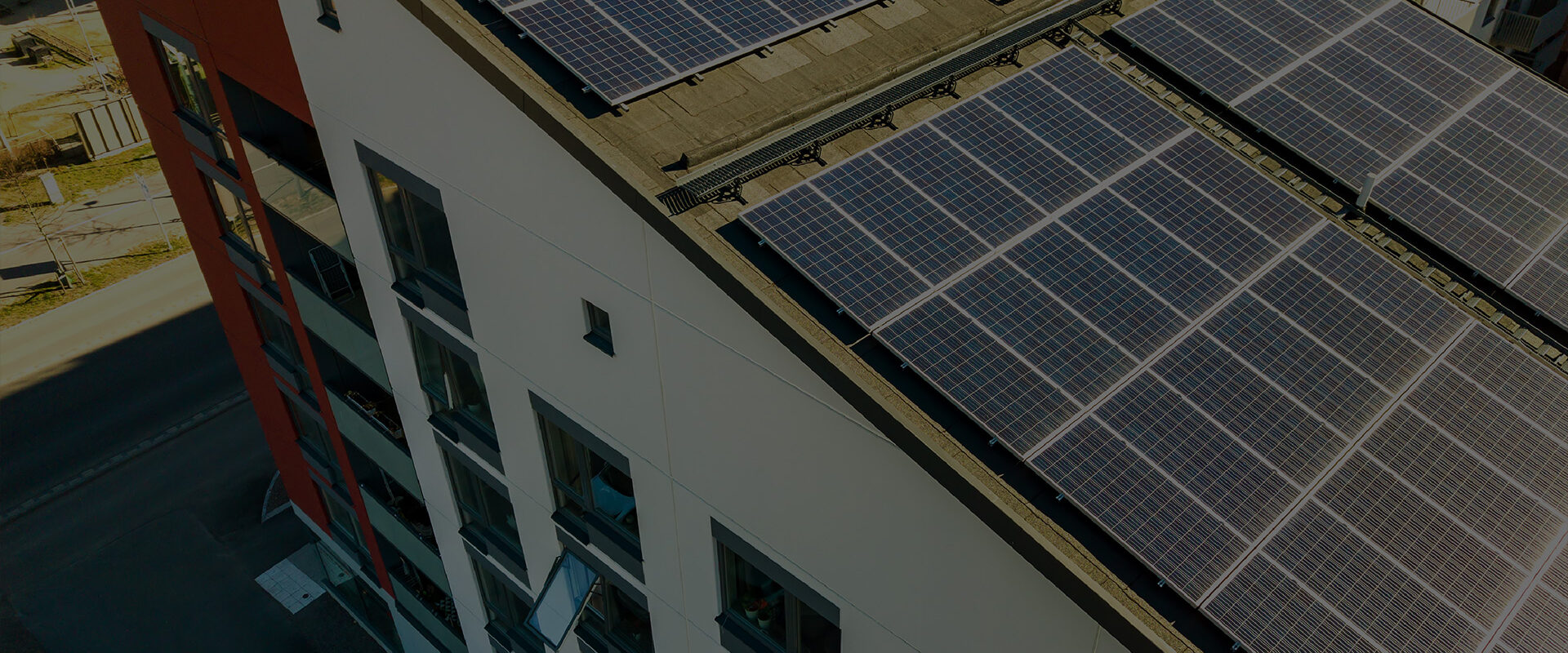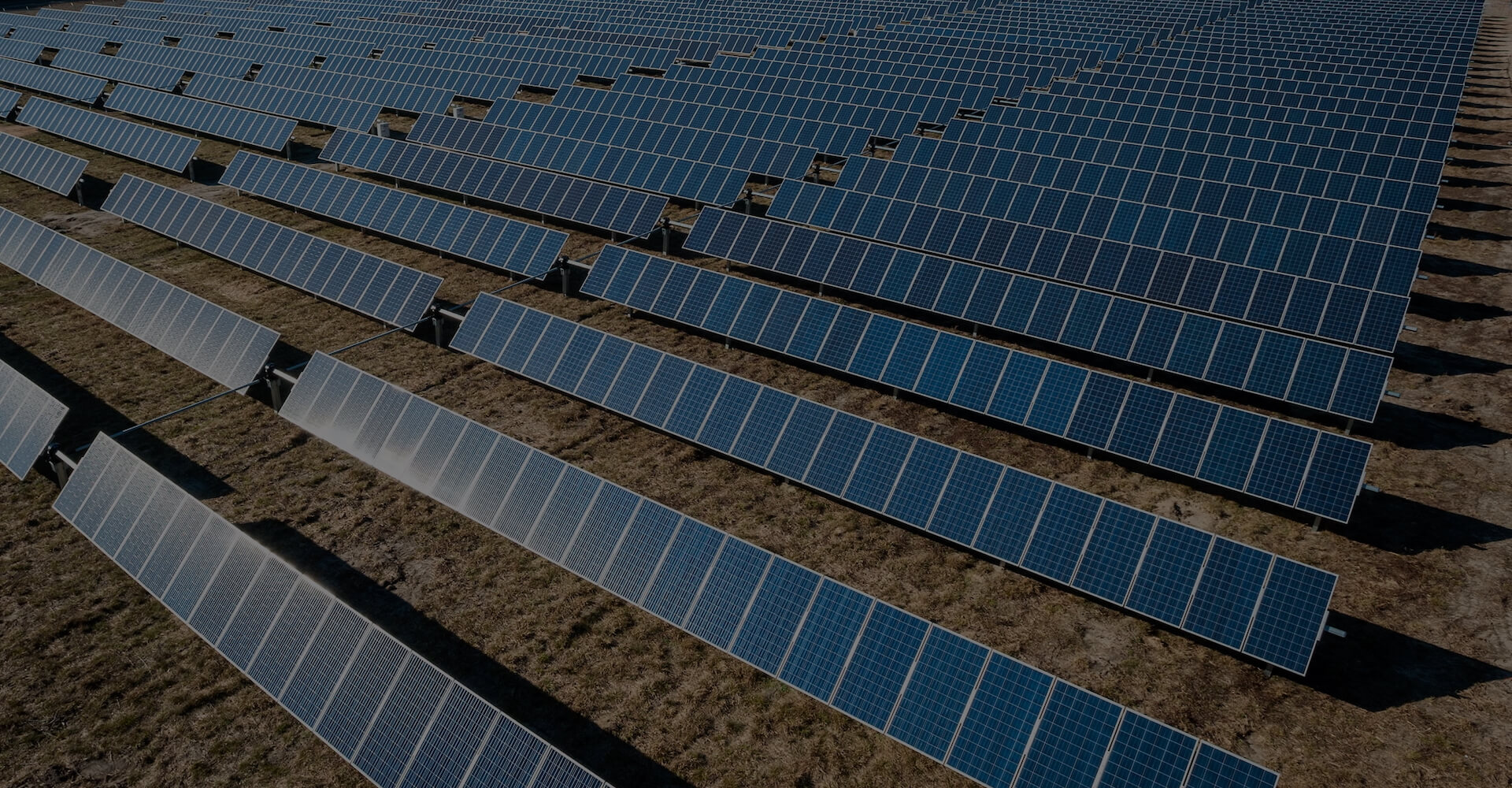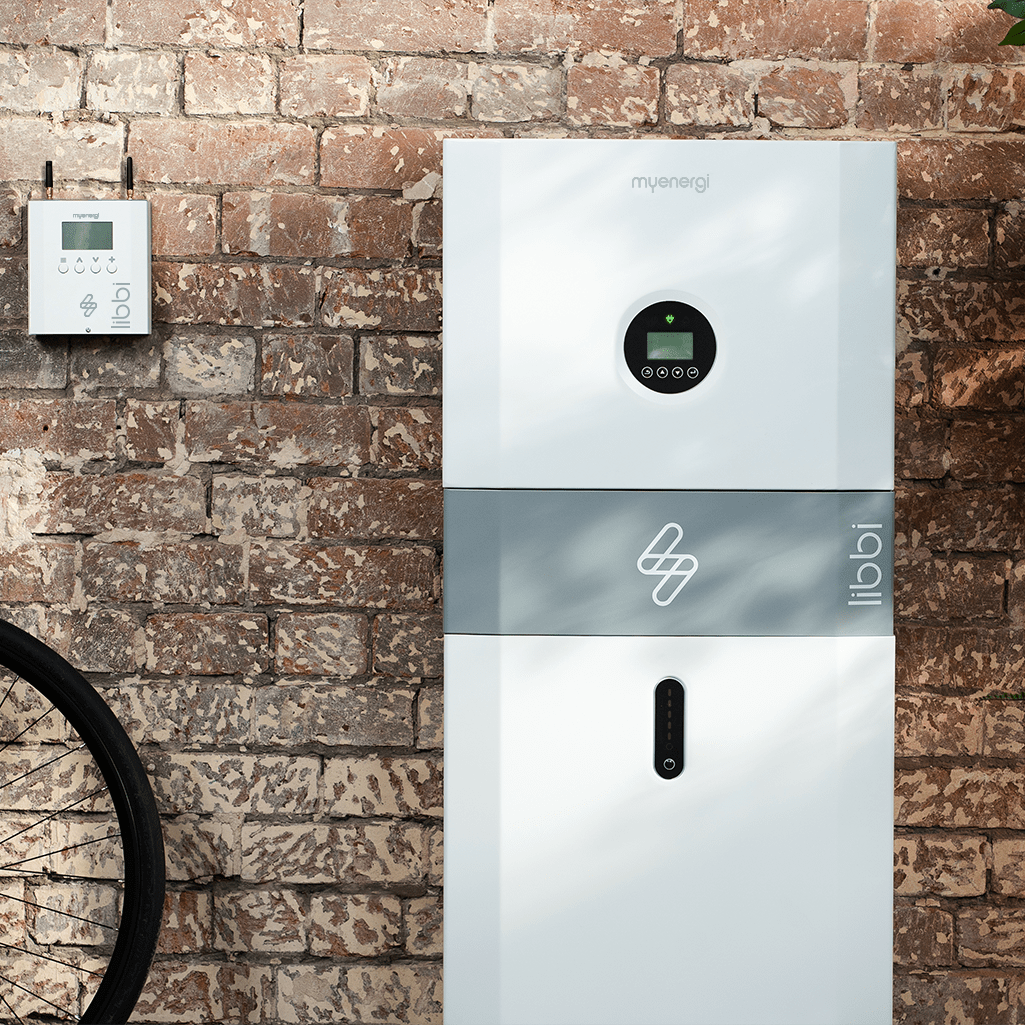
How to store solar energy at home
Storing solar energy at home requires a solar battery storage system, like the myenergy libbi.
These lithium-ion powered beauties capture the excess energy produced by your solar panels, allowing you to use it whenever you need it.
Here’s how the process works:
- Your solar panels capture sunlight and convert it into electricity, powering your home during daylight hours.
- Excess electricity generated during the day is stored in your home battery, instead of being sent back to the grid.
- This stored energy can be used later, such as at night or during typical British weather.
- By using a solar battery storage system, homeowners can become less reliant on the grid and get the most out of their solar investment.
Solar energy storage FAQs
Yes, solar energy can be stored and used at night if you have a solar energy storage system. During the day, any excess energy your solar panels produce is stored in the solar electricity storage battery. When the sun goes down, or during periods when your panels aren’t generating enough electricity, you can draw power from the stored energy.
No, solar panels themselves do not store energy. They simply convert sunlight into electricity for immediate use. Without a battery storage system, any excess electricity that isn’t used by your home is sent back to the grid. To store the energy your panels generate and use it later, especially at night or during overly cloudy days, you need a home battery system.
The length of time a solar battery can store energy depends on its size, type, and how much electricity your household uses. A typical solar battery can store energy for one to five days, depending on its capacity and your household consumption. Larger, high-capacity batteries can store enough energy to last longer, making them ideal for homes with higher energy demands or extended periods of low sunlight.
A solar battery’s storage capacity is measured in kilowatt-hours (kWh), which indicates how much energy it can hold. Smaller batteries typically store around 5 kWh, which is enough for basic overnight use. Larger systems can store up to 20 kWh or more, depending on the model. The size of the battery you need depends on your household’s energy consumption and the amount of solar power your panels generate.

Is solar energy difficult to store?
Solar energy is easily stored with today’s battery technology. Lithium-ion batteries, which are the most common type used for home solar storage, are efficient, durable, and easy to manage.
These batteries have a long lifespan and require minimal maintenance. Modern battery systems are designed to seamlessly integrate with solar panels, allowing homeowners to store excess energy generated during the day and use it at night or during high-demand periods.
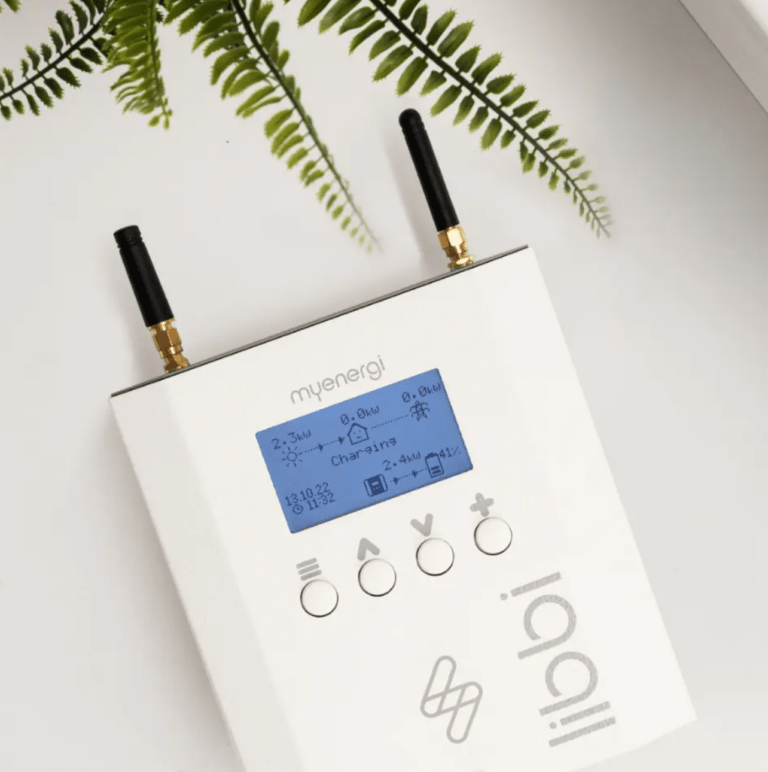
What size solar battery do you need?
The size of the solar battery you need depends on your household’s average energy consumption and how much solar energy your panels generate. For most homes in the UK, a 5-10 kWh battery can provide enough storage to cover nighttime use. Larger homes or those with higher energy needs may require a 15-20 kWh battery to store sufficient energy for both night use and cloudy days.
Our libbi home battery has a modular design, meaning that you can start small and upgrade your battery to suit your needs.
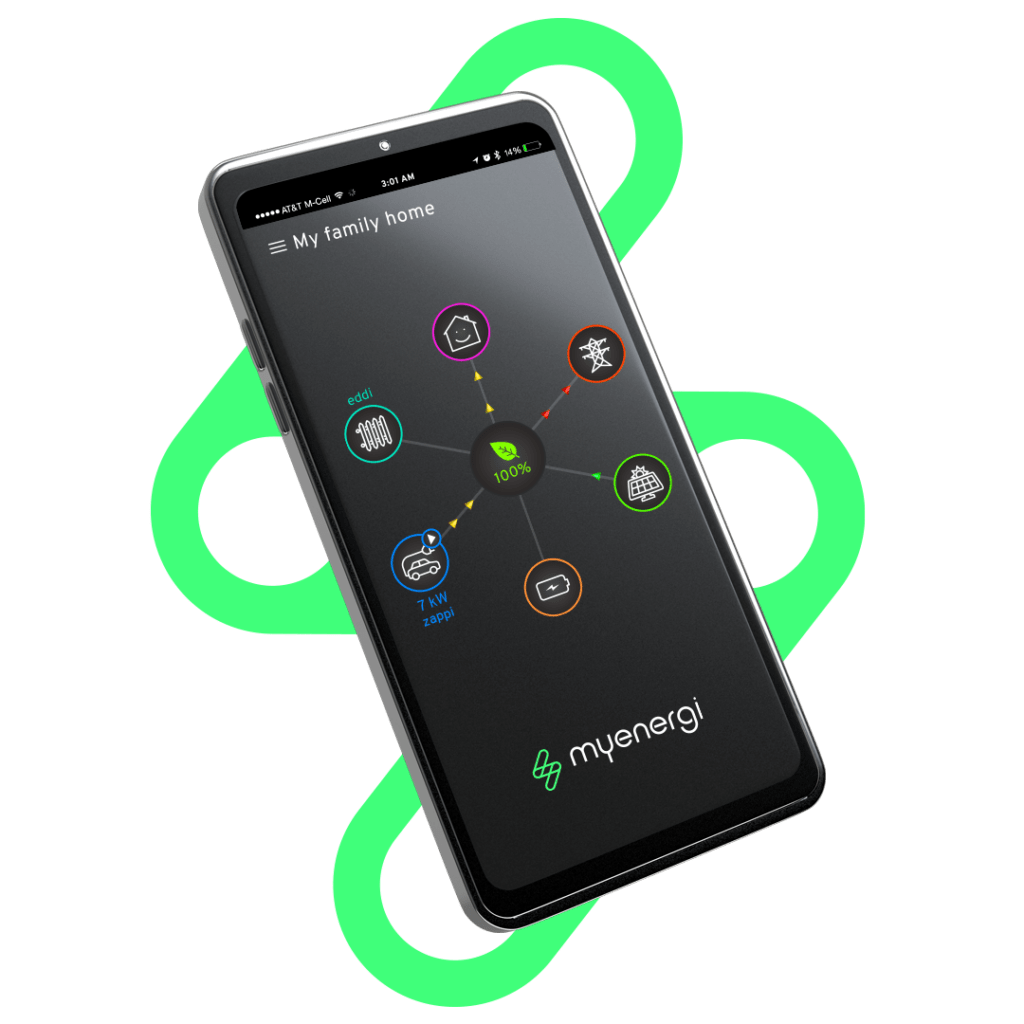
Maximising efficiency with smart energy management
Modern solar battery systems typically come with intelligent energy management features that help you optimise energy use. This allows you to monitor and manage your energy production, storage, and consumption, ensuring you get the most value out of your solar power.
By tracking your usage patterns, the system can make adjustments to maximise efficiency, storing energy when it’s most cost-effective and distributing it when needed – taking the guesswork out of managing your energy consumption.
Monitor your energy with our app
Can solar batteries improve property value?
Investing in a home solar battery system can increase your property’s value. Homes with energy-efficient features, such as solar panels and battery storage, are increasingly attractive to eco-conscious buyers.
The promise of lower energy bills, reduced carbon footprints, and energy independence can make your home stand out on the market, while also adding long-term financial benefits.
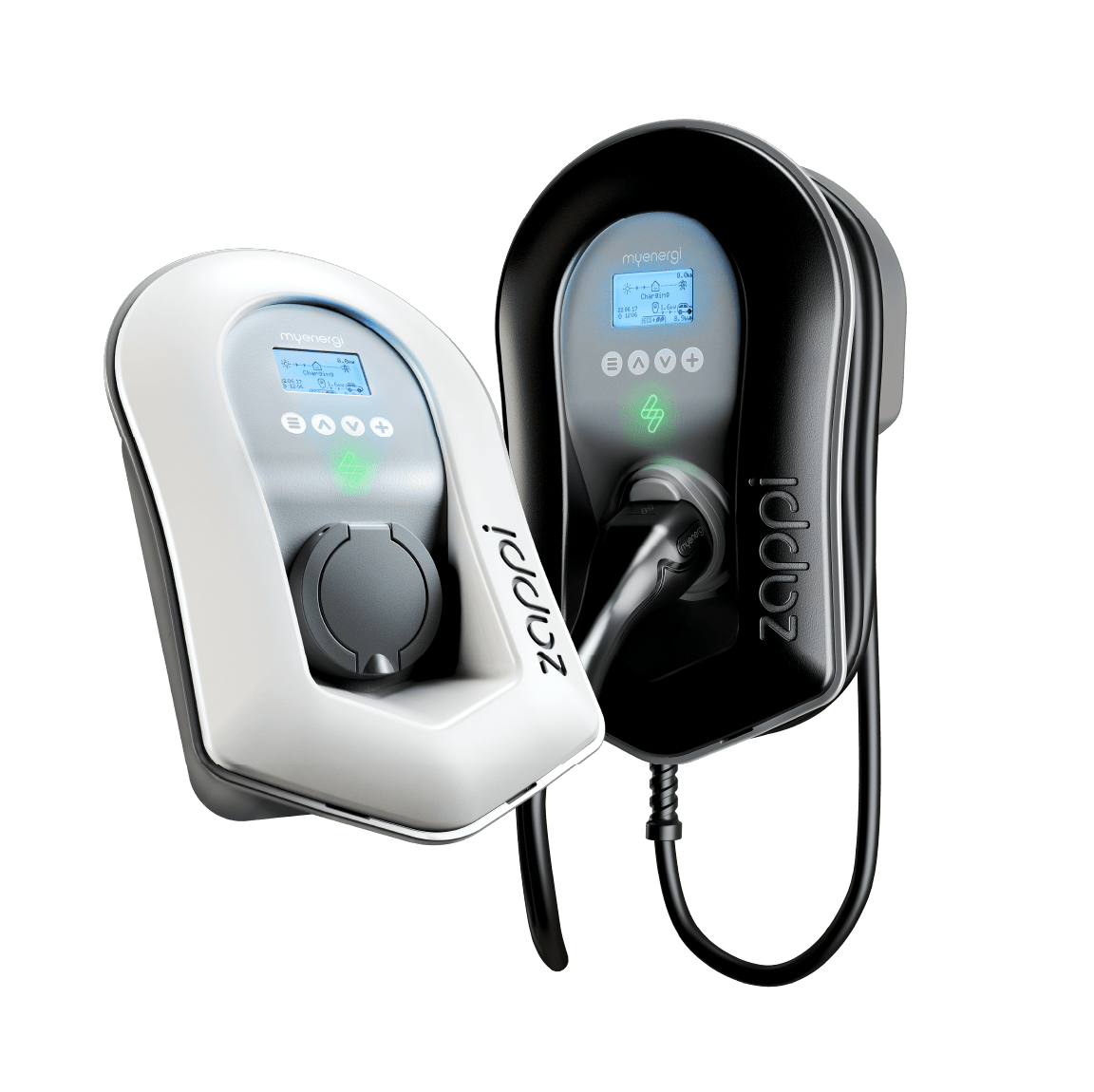
Energy storage for electric vehicle owners
If you own an electric vehicle, pairing your EV charger with solar battery storage can further boost your energy independence. By using a home battery system, you can store excess solar power during the day and use it to charge your EV at night, reducing the need to rely on expensive grid power.
This not only saves you money but also ensures your vehicle runs on clean, renewable energy.
Check out our guide to EV chargingJoin the energy independence revolution
Join the energy independence revolution with myenergi One and take control of your energy future. By investing in renewable technologies like solar panels and EV chargers, you’ll not only reduce your reliance on the grid but also generate clean, sustainable energy for your home.
Start your journey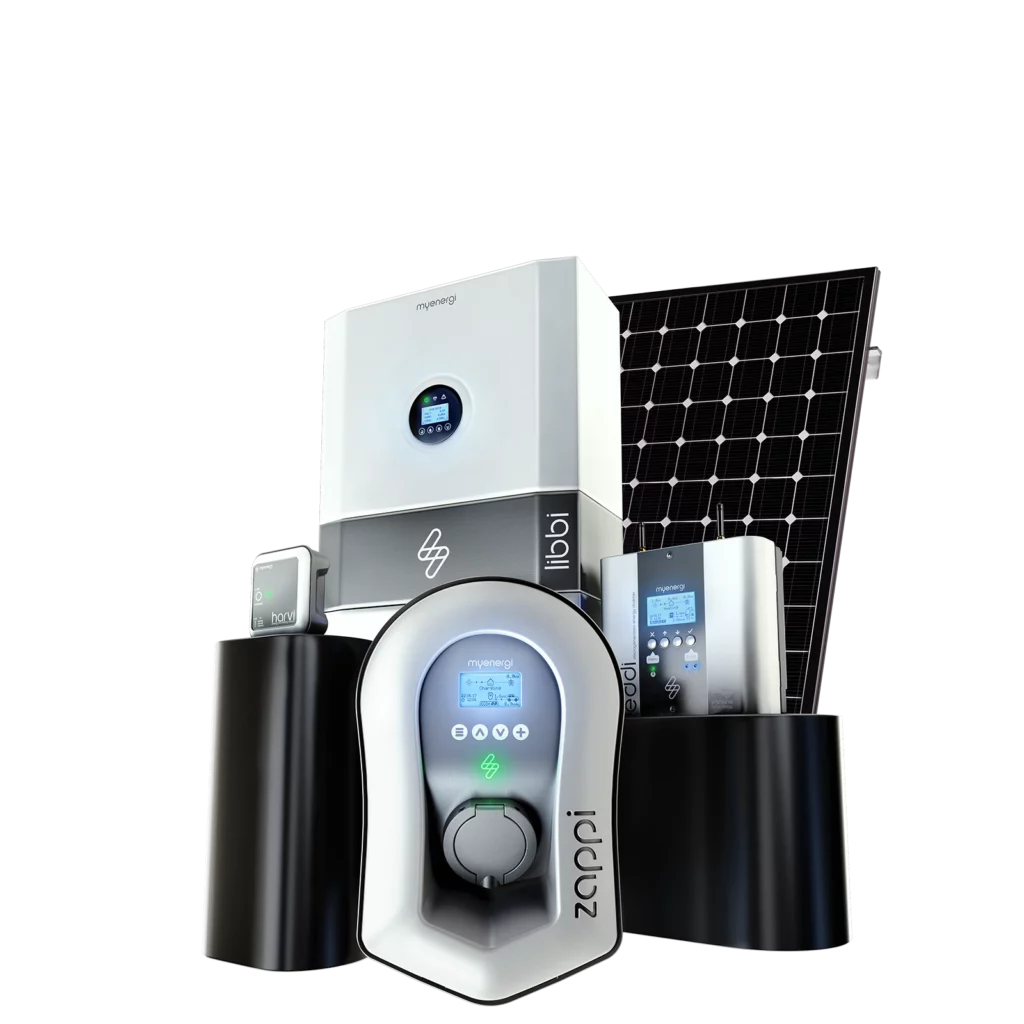
Energy security
Solar battery storage offers energy security by providing backup power during blackouts, extreme weather, or peak demand prices. By storing excess solar energy, your home becomes less dependent on the national grid and less vulnerable to power outages or fluctuations in electricity costs. This layer of flexibility ensures that you can keep essential appliances running, maintaining comfort even during grid failures.
Long term savings
Solar battery storage helps reduce your energy bills by allowing you to store excess energy during cheaper, off-peak hours, and use it when electricity prices rise during peak rate times. By using stored energy, you can avoid the higher costs associated with grid power during those expensive periods, maximising the value of your solar panels. Over time, these savings can add up significantly, making solar battery storage a sound investment for homeowners looking to lower their energy costs.
Lower carbon footprint
By storing and using solar energy, you can significantly reduce your household’s reliance on fossil fuels and grid electricity, which often comes from non-renewable sources. This shift allows you to cut down on carbon emissions, contributing to a cleaner, greener environment. Solar battery storage enables you to make the most of renewable energy, ensuring that your home is more eco-friendly while helping to lower your overall environmental impact in the long term.
Your solar energy storage questions answered
Solar batteries typically need to be replaced every 10 to 15 years, depending on the type and usage. Most modern lithium-ion batteries have a lifespan of around 10 years with regular use. Over time, the battery capacity may decline, reducing how much energy it can store. Regular maintenance and monitoring can help maximise their lifespan and ensure optimal performance.
When solar batteries are fully charged, any excess electricity generated by your solar panels is typically sent back to the grid. Alternatively, in off-grid systems, excess energy might be wasted if it cannot be stored or used immediately. A battery management system usually controls this process to prevent overcharging.
Yes, solar panels still work on cloudy days, but they produce less energy compared to sunny conditions. Solar panels may generate 10-25% of their usual output on a particularly cloudy day. This is where solar battery storage becomes useful, as it allows you to store excess energy generated on sunny days and use it when solar production is lower due to cloudy weather, ensuring a more consistent power supply.
Investing in solar battery storage is a no-brainer for homeowners with solar panels. Although the initial cost may seem high, the long-term benefits far outweigh the expenses. By storing excess energy generated during the day, you can reduce reliance on the grid during peak demand times, significantly lowering your electricity bills.

